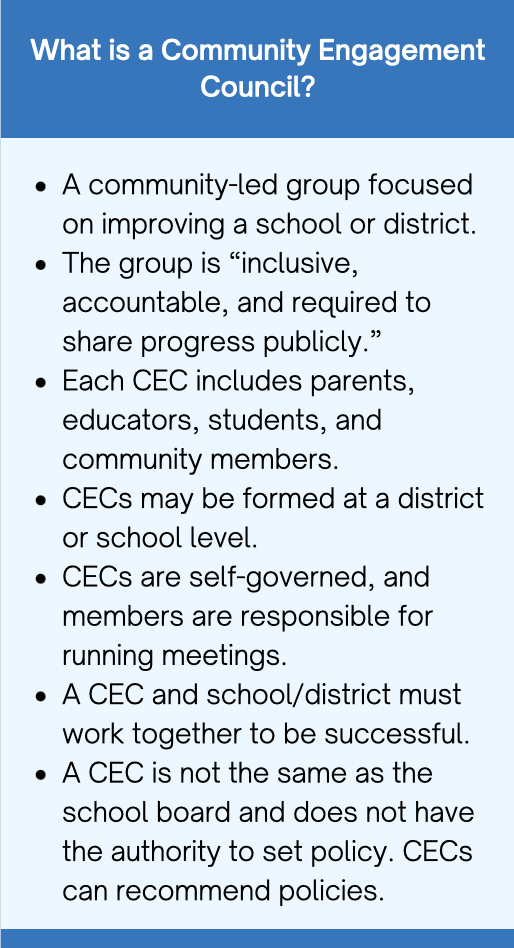
You might be wondering, what is a Community Engagement Council? Community Engagement Councils (CECs), required under Miss. Code Ann. §37-18-5, are community-led groups focused on improving a school or district. A CEC must be established if any of the following occurs: (1) a district receives a grade of D or F, or (2) a school receives a grade of D or F. A district with several schools rated D or F may choose to establish one district-level CEC instead of multiple school CECs. In the 2021/22 school year, 31% of districts and 32% of schools in Mississippi were required to establish a CEC.
How did R7CC engage stakeholders in providing input to the CEC process? R7CC coordinated with MDE to develop communications, data collection plans, and a calendar that allowed for the collection of feedback and information from all stakeholder groups expected to engage in CECs. This process involved multiple collection methods and occurred over four months in 2022.
Note: Community Engagement Councils were previously called “P-16 Councils.”
First, R7CC designed an online survey to collect feedback and information about current CEC implementation. MDE communicated with all school and district leadership and current CEC members to inform them of the plan to update guidance for the 2022/23 school year and R7CC’s involvement as a third party to collect feedback and support the revision process. R7CC then distributed the online survey and provided completion reminders. The survey was completed by 139 respondents from 37 districts across Mississippi. Respondents represented all of the constituent categories required of CECs (school faculty and staff, school administration, community business leaders or public officials, students, parents, and community-based organizations).
Next, R7CC designed a focus group protocol to collect more information about CEC members’ experiences. R7CC invited survey respondents to sign-up for a virtual focus group, providing multiple date and time options to maximize participation. Four focus groups were conducted with a total of 23 participants representing 9 different CECs. Respondents covered all constituent categories except students.
What did we learn? The surveys and focus groups revealed that CEC members are committed to their communities and desire to help schools improve. However, they are confused about the purpose of the CEC and how they are supposed to function. They are interested in learning from other CECs and want more guidance on how to achieve positive outcomes.
R7CC and MDE used this feedback to refine and update the guidance for establishing a CEC to address the needs identified by CEC members and MDE priorities. R7CC conducted a final round of focus groups to share the updates to the guidance and collect additional feedback prior to final revisions.
What’s next? MDE rolled out the new guidance at the beginning of the 2022/23 school year. Over the course of the year, MDE and R7CC will collect feedback on the guidance and identify additional tools, templates, and supports that may be useful in establishing or maintaining CECs. Future blog posts will discuss these additional supports and the progress that districts and schools have made in establishing and maintaining CECs that are representative of their communities and that provide opportunities for meaningful involvement in supporting student learning.